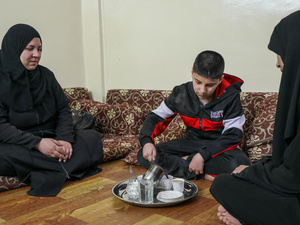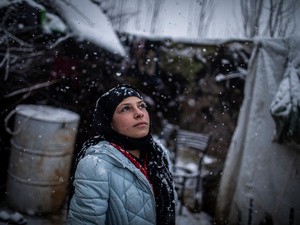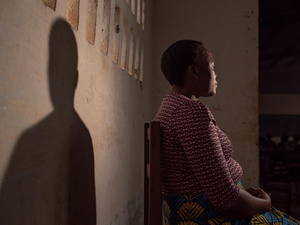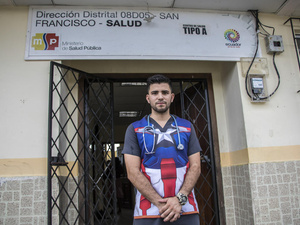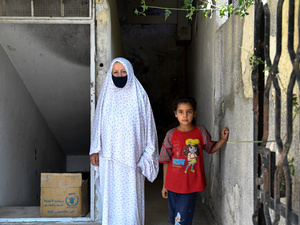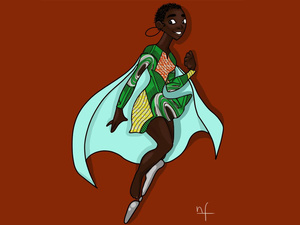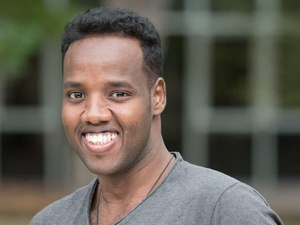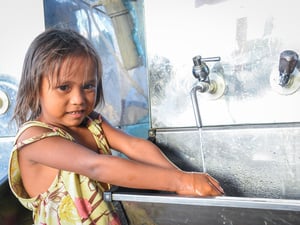Refugees receive COVID-19 vaccinations in Jordan
Refugees receive COVID-19 vaccinations in Jordan
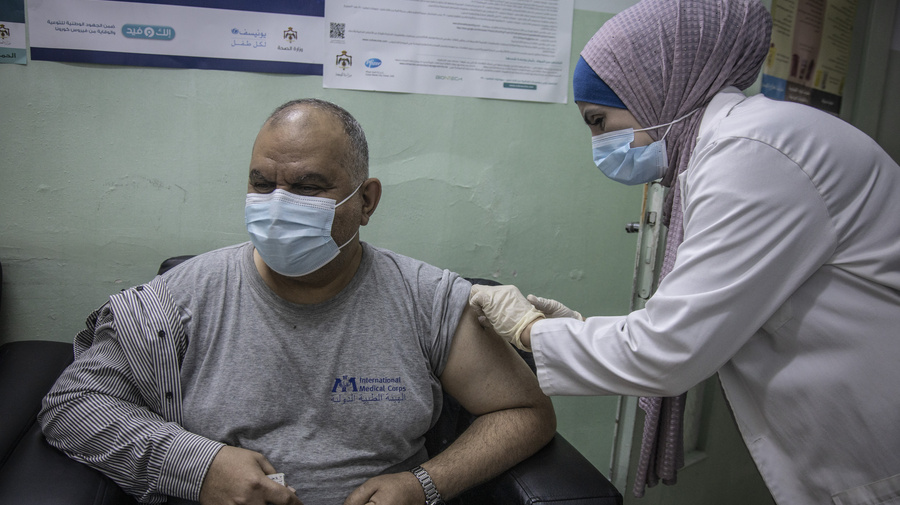
A medical worker administers a dose of COVID-19 vaccine at the Irbid Vaccination Clinic in Jordan.
Jordan has become one of the world’s first countries to start COVID-19 vaccinations for refugees, UNHCR, the UN Refugee Agency, reports today.
Raia Alkabasi, an Iraqi refugee living in the northern city of Irbid, was the first UNHCR-registered refugee in the country to receive the vaccine at the Irbid Vaccination Clinic today. Jordan’s Ministry of Health is administering the vaccinations.
“Once again Jordan has shown exemplary leadership and solidarity in hosting refugees. The country has included refugees in every aspect of the public health response to the pandemic, including the national vaccination campaign, proving how it should be done if we are to keep everyone safe,” said UN High Commissioner for Refugees Filippo Grandi.
“I appeal to all countries to follow suit and include refugees in their vaccination drives on par with nationals and in line with COVAX allocation principles.”
National authorities are responsible for public health responses and COVID-19 vaccination programs. UNHCR is aware that of the 90 countries currently developing national COVID-19 vaccination strategies, 51 – or 57 per cent – have committed to include refugees.
UNHCR has been advocating for the equitable inclusion of refugees, internally displaced and stateless populations through the COVAX Facility, a global initiative that brings together governments and manufacturers to ensure that COVID-19 vaccines eventually reach those in greatest need. Low- to middle-income countries have been identified as priority countries for support.
“The vast majority of the world’s refugees are hosted in low- and middle-income countries. The international community must do more to support host governments with access to the vaccines. Global and equitable access is what will ultimately protect lives and stem the pandemic,” Grandi said.
As part of Jordan’s national COVID-19 vaccination plan, which commenced this week, anyone living in the country, including refugees and asylum seekers, is entitled to receive the vaccine free of charge.
Close cooperation between UNHCR and the Government of Jordan and the Ministry of Health, as well as the strong adherence of refugees to prevention measures, has been key in limiting the spread of the virus among these vulnerable populations.
Since the first case of COVID-19 was confirmed among refugees in Jordan in September last year, 1,928 refugees living in refugee camps have tested positive for the virus. The proportion of refugees with COVID-19 has also remained low, at 1.6 per cent, compared to three per cent among the general Jordanian population.
While UNHCR is not procuring vaccinations – as this remains the prerogative and responsibility of governments – it is supporting refugee host countries through other COVID-preparedness and response interventions. Among these are critical health, sanitation, hygiene and logistical support as well as personal protective equipment.
NOTES:
Information on vaccines, refugees and UNHCR’s work is available here.
With millions of refugees, internally displaced and stateless people now falling into conditions of extreme hardship and facing disastrous socio-economic and protection impacts induced by the pandemic, UNHCR is appealing for US$455 million to meet these exceptional COVID-19-related needs. More information is available here.
For more information on this topic, please contact:
- In Amman: Lilly Carlisle, [email protected], +962 79 964 9430
- In Amman (regional): Rula Amin, [email protected], +962 79 004 5849
- In Amman (regional): Andreas Kirchhof, [email protected], +962 79 182 5473
- In Geneva: Shabia Mantoo,[email protected], +41 79 337 7650
- In Geneva: Andrej Mahecic, [email protected], +41 79 642 9709
- In New York: Kathryn Mahoney, [email protected], +1 347 443 7646


